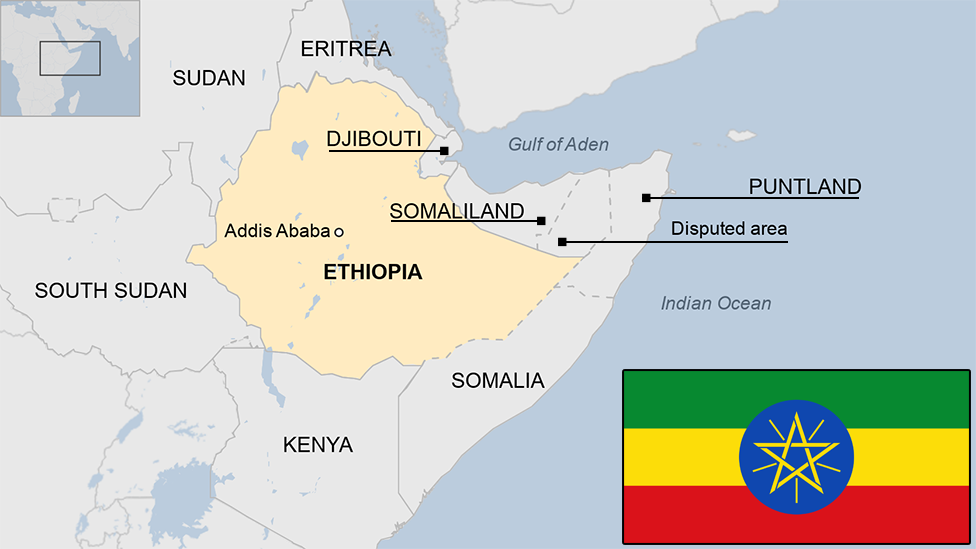Djibouti country profile
- Published
This page is no longer being updated. It was last updated on 18 April 2023
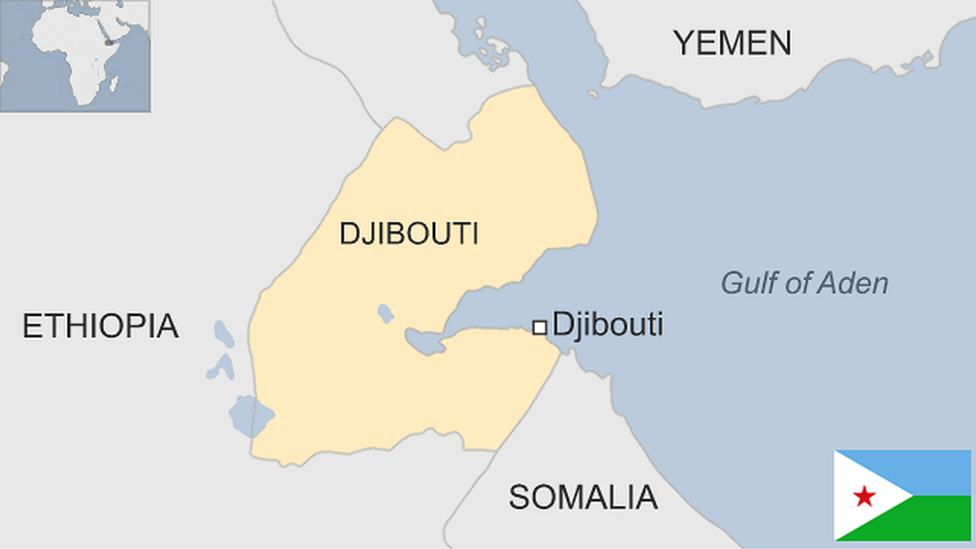
Lying on the Bab el-Mandeb Strait, the tiny African nation of Djibouti serves as a gateway to the Suez Canal, one of the world's busiest shipping routes.
Its port is the lifeblood of its economy, providing the biggest source of income and employment in this otherwise barren country.
Djibouti's proximity to restive areas in Africa and the Middle East and its relative stability have made it a prized location for foreign military bases and ensured a steady flow of foreign assistance.
Former colonial power France maintains a significant military presence. The country also hosts America's largest military base in Africa, China's first overseas military base and Japan's first military base since the Second World War.
Djibouti serves as the main gateway for trade for its giant neighbour, landlocked Ethiopia.
Read more country profiles, external - Profiles by BBC Monitoring, external
REPUBLIC OF DJIBOUTI: FACTS
Capital: Djibouti
Area: 23,200 sq km
Population: 957,200
Languages: Arabic, French, Somali, Afar
Life expectancy: 65 years (men) 69 years (women)
LEADER
President: Ismail Omar Guelleh
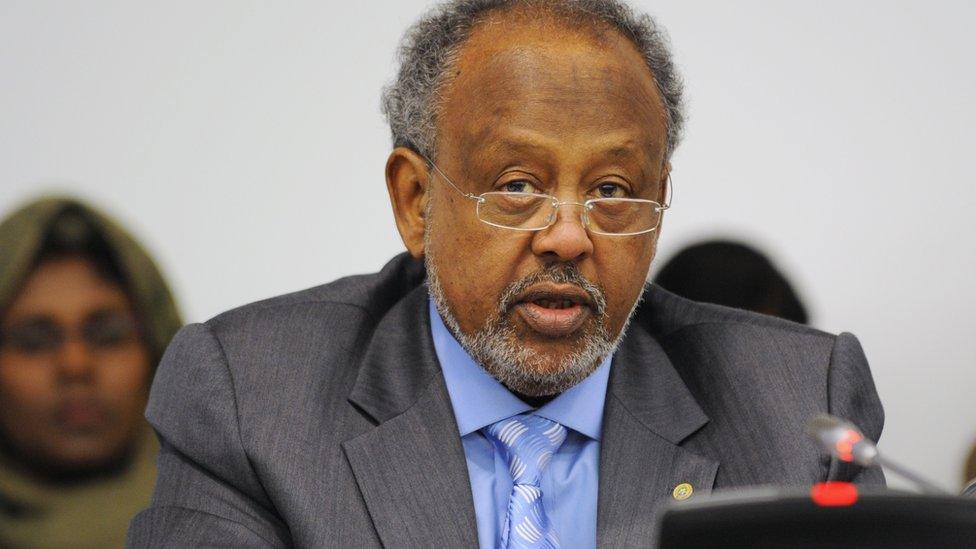
Ismail Omar Guelleh came to power in elections in 1999, succeeding Hassan Gouled Aptidon, who led the country for two decades since independence.
He was re-elected in 2005, 2011, 2016 and 2021 in elections that were largely boycotted by the opposition amid complaints over widespread irregularities
Born in Ethiopia in 1947, Mr Guelleh, like his predecessor, belongs to the Mamassans, a sub-clan of the Issa. His family moved to Djibouti in 1960 and eight years later he joined the intelligence services, rising through the ranks to become head of state security in 1977.
MEDIA
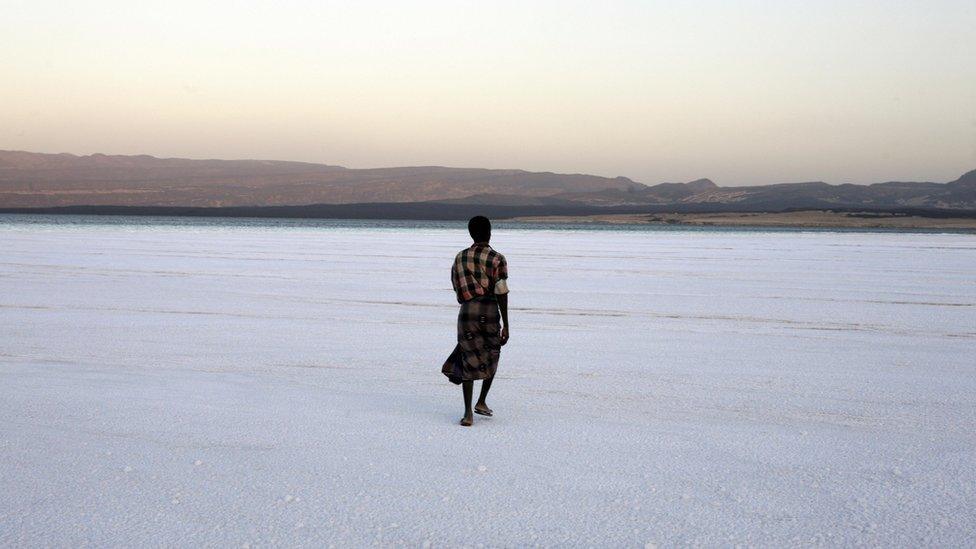
Djibouti's saline Lake Assal lies 155m below sea level, making it the lowest point in Africa. It is used for quarrying salt
Djibouti's media environment is dominated by the state. There are no private TV or radio stations and the government owns the main newspaper and the national broadcaster Radiodiffusion-Television de Djibouti (RTD).
Reporters Without Borders says local journalists "live in fear". The few opposition media outlets are based outside the country.
TIMELINE
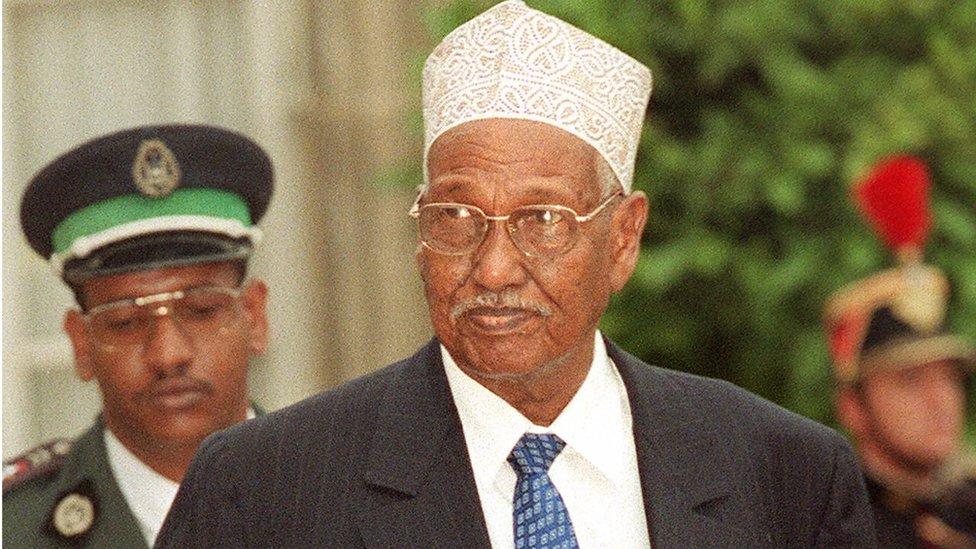
Hassan Gouled Aptidon was independent Djibouti's first president and was in post for two decades
Some key dates in Djibouti's history:
2500BC - Land of Punt. Djibouti, along with northern Ethiopia, Somaliland, Eritrea and the Red Sea coast of Sudan, is considered the most likely location of the territory known to the Ancient Egyptians as Punt.
825AD - Somali and Afar ethnic groups become first Africans to embrace Islam in the region.
1285-1415 - Ifat Sultanate.
1415-1577 - Adal Sultanate.
1577 - Becomes part of the Ottoman Empire.
1862 - France gains a foothold in the region, acquiring the trading port of Obock.
1888 - French colony of Somaliland established over the region.
1892 - Djibouti becomes capital of French Somaliland.
1897 - Ethiopia acquires parts of Djibouti after signing a treaty with France.
1946 - Djibouti made an overseas territory within the French Union with its own legislature and representation in the French parliament.
1958 - Djibouti votes to join the French Community.
1967 - Referendum takes place during which Afar people and Europeans vote to remain part of the French Community; French Somaliland renamed the French Territory of the Afars and the Issas.
1977 - The French Territory of the Afars and the Issas becomes independent as Djibouti with Hassan Gouled Aptidon as president. France retains a significant military base in Djibouti after independence.
1991-2000 - Civil war between government forces and the Afar Front for the Restoration of Unity and Democracy (FRUD) in the northeast of the country. Ends with a power-sharing agreement between Afar rebels and the Somali Issa-dominated government.
2003 - First free multi-party presidential election.
2008 - Fighting between Djiboutian and Eritrean troops in the disputed Ras Doumeira border area. Both countries agree to resolve their border dispute peacefully in 2010.
2017 - Djibouti accuses Eritrea of sending troops into a disputed area on the border, following the withdrawal of Qatari peacekeepers.
China formally opens its first overseas military base in Djibouti.
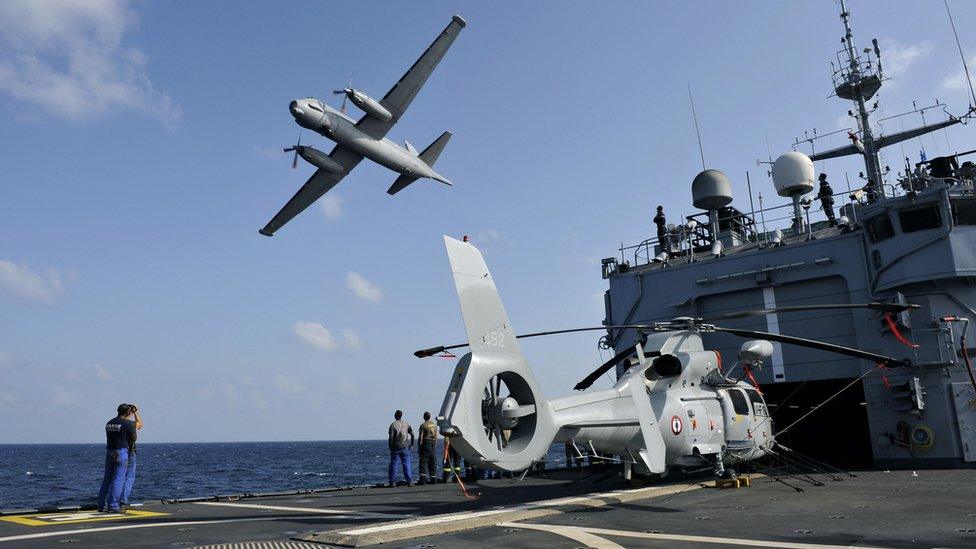
Because of its strategic location, Djibouti plays host to several foreign military bases
- Published18 April 2023
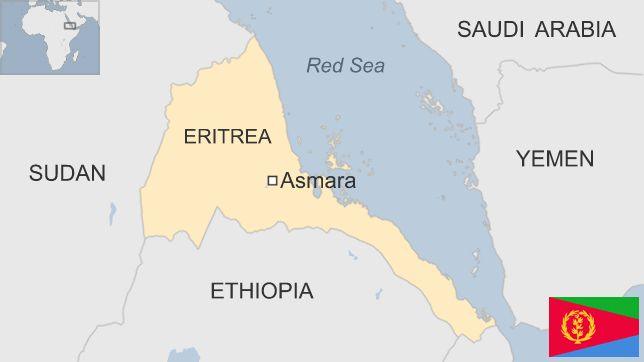
- Published13 February 2024
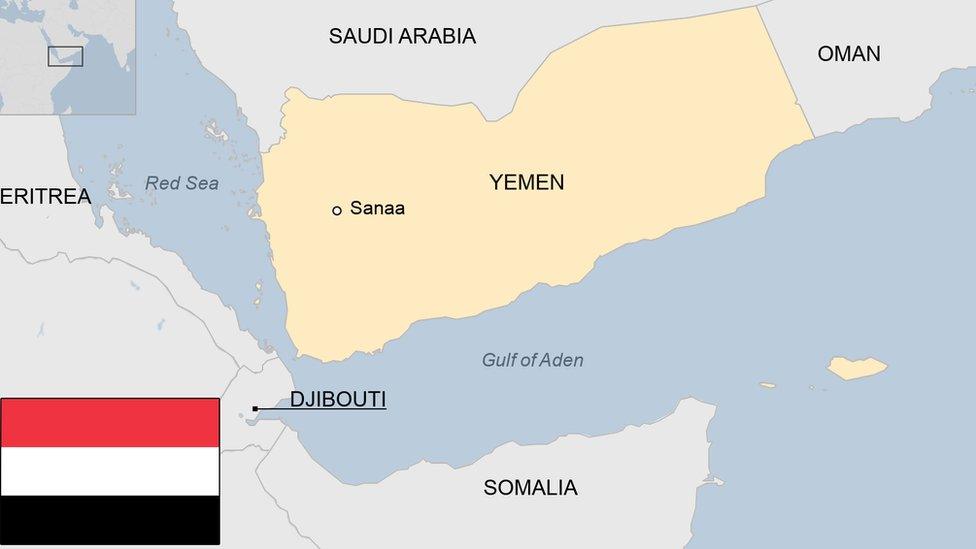
- Published2 January 2024
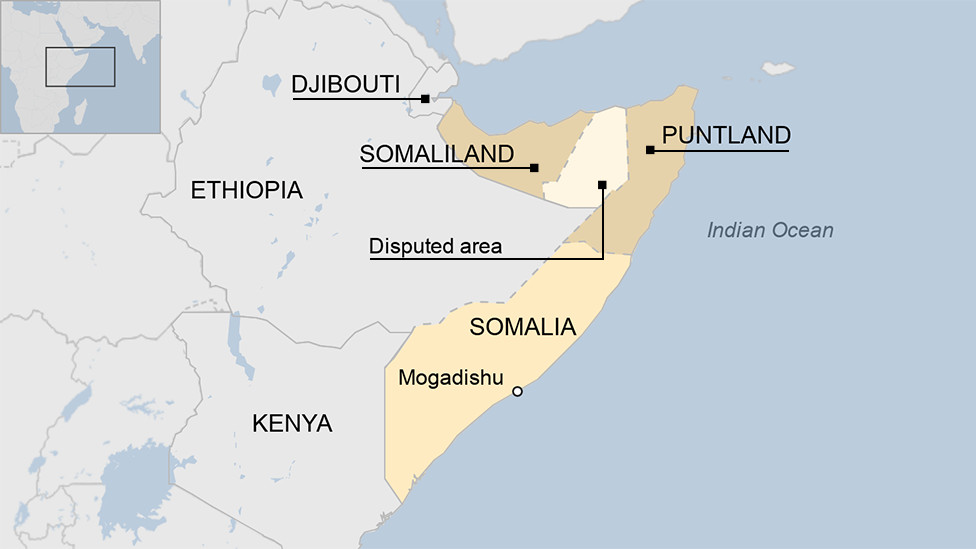
- Published2 January 2024
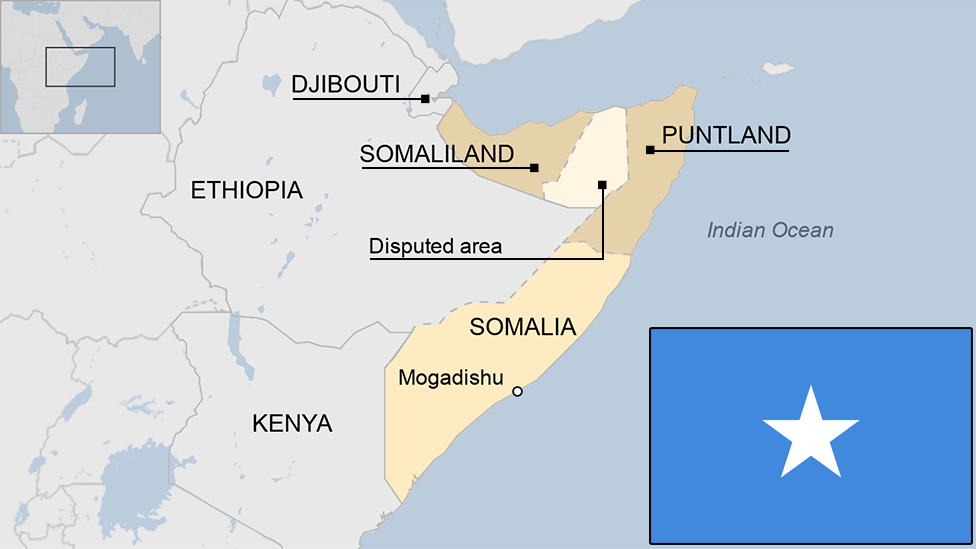
- Published2 January 2024
